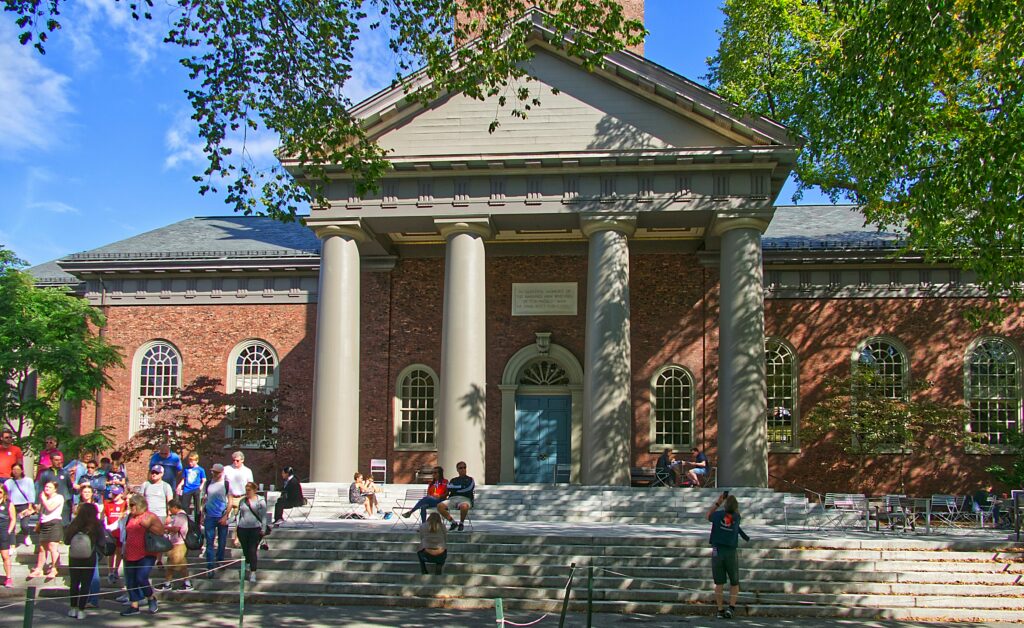Harvard University has filed a lawsuit against the Trump administration in response to its decision to cut billions in federal funding, a move the university claims threatens its academic freedom and constitutional rights. The dispute centers around the administration’s decision to withhold funds from Harvard, citing political reasons linked to campus protests and the university’s stance on controversial issues. Harvard argues that the funding freeze infringes upon its right to free expression and undermines its independence.
The Trump Administration’s Funding Freeze
In March 2025, the U.S. Department of Education announced it would reassess financial support for over 60 higher education institutions, with Harvard being one of the primary targets. This reassessment comes in the wake of pro-Palestinian protests that intensified on Harvard’s campus following the Gaza conflict in October 2023. Officials from the Trump administration have accused the university of fostering antisemitism and promoting a politically biased agenda, particularly through these protests.
Along with the funding freeze, former President Donald Trump’s administration threatened to strip Harvard of its tax-exempt status, arguing that the university’s political affiliations made it an unqualified recipient of federal funds. The university, however, maintains that its stance on free speech and political expression is a fundamental right protected by the Constitution.
Harvard’s Legal Challenge to Funding Cuts
Harvard has strongly opposed the cuts and filed a lawsuit arguing that the Trump administration’s actions violate the First Amendment. The university asserts that the government is using financial pressure to control the university’s policies, particularly around free expression and the right to protest. Harvard’s legal team seeks an immediate halt to the cuts, calling them politically motivated and unjustified.
In the legal filing, Harvard contends that the actions by the Trump administration represent an overreach of government power and pose a significant threat to academic freedom. The university has vowed to continue resisting external pressures that aim to influence its governance and the decisions it makes regarding political and social issues on campus.
Harvard’s Resistance to Political Pressure
Despite facing mounting pressure, Harvard has refused to bend to the administration’s demands. The university has maintained its stance on political neutrality and academic independence, rejecting calls to close its diversity offices or assist federal authorities in student investigations. Harvard President Alan Garber made it clear that the university would not compromise its constitutional principles or its autonomy in the face of political interference.
“Harvard’s commitment to the open exchange of ideas and its role as a beacon for academic inquiry are non-negotiable,” Garber stated. “We will not allow political forces to dictate the direction of our institution or compromise our academic integrity.”
The University of Minnesota’s Response to Political Pressure
While Harvard has the financial resources to resist political pressures, other public institutions are less fortunate. At the University of Minnesota, political concerns led to the resignation of Howard Louthan, the director of the Center for Austrian Studies, on April 10. His resignation followed the removal of a statement condemning Russia’s invasion of Ukraine from the center’s website. Louthan alleged that a new university committee had been tasked with identifying and removing controversial content, including material related to the Gaza conflict, Palestine, and Israel.
Louthan suspected that the university’s actions were motivated by the fear of losing federal funding, particularly with Minnesota Governor Tim Walz running for the Democratic vice-presidential candidacy. Unlike private institutions like Harvard, public universities such as the University of Minnesota rely heavily on federal funding to support research, faculty salaries, and student programs.
Louthan warned that losing access to federal funds could significantly disrupt academic research and the university’s ability to contribute to critical fields such as health and science.
The Ongoing Battle Over Free Speech and Funding
The battle between universities and the federal government is a growing concern in the current political climate. On one hand, institutions like Harvard argue for the protection of academic freedom and the right to express dissenting opinions. On the other hand, the federal government’s moves to withhold funding represent a clear attempt to influence the direction of higher education institutions, particularly in matters related to political activism and speech.
The ongoing lawsuit filed by Harvard against the Trump administration will likely set a precedent for how future conflicts between universities and the government are handled. The outcome of the case could have far-reaching implications for the future of academic independence and the balance of power between universities and government authorities.
As the legal battle unfolds, the broader conversation surrounding academic freedom, political pressure, and the role of government in higher education will continue to gain prominence. Harvard’s resistance to federal interference, coupled with the concerns voiced by faculty and students at institutions like the University of Minnesota, signals a growing pushback against government overreach in the realm of higher education.
For now, the lawsuit against the Trump administration remains a key development in the ongoing debate over the balance of power between universities, political forces, and the protection of constitutional rights. Universities nationwide are watching closely, as the outcome of this case could shape the future of free expression and academic governance in America.
